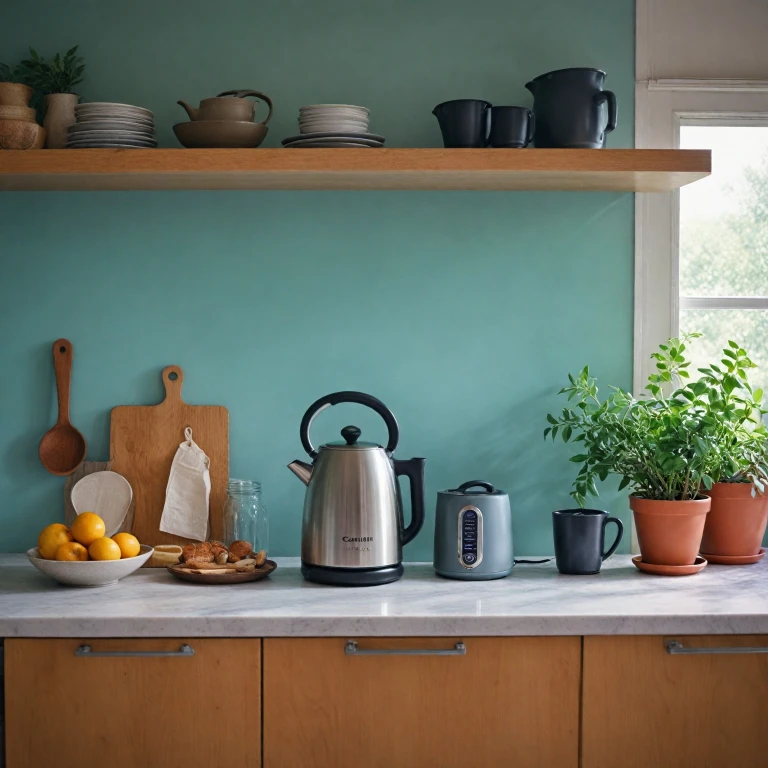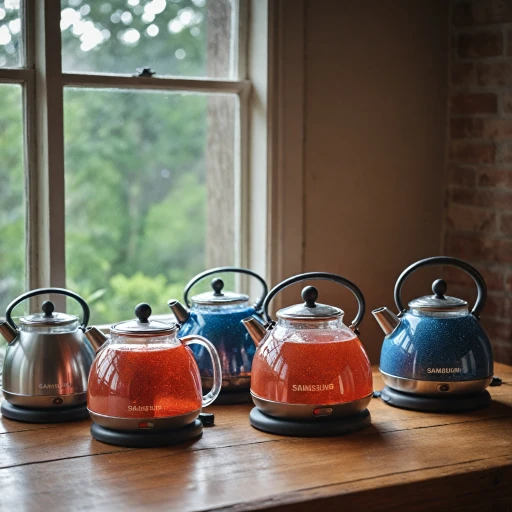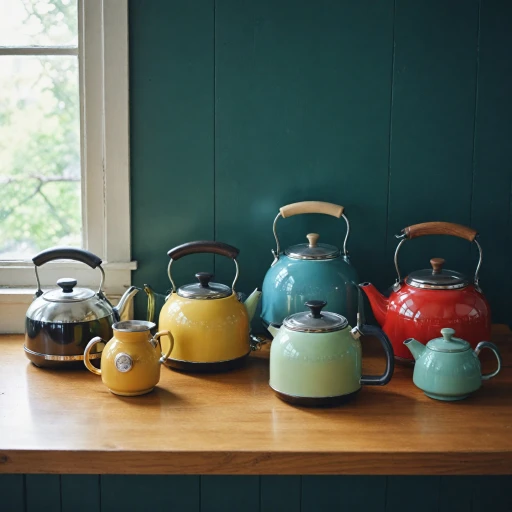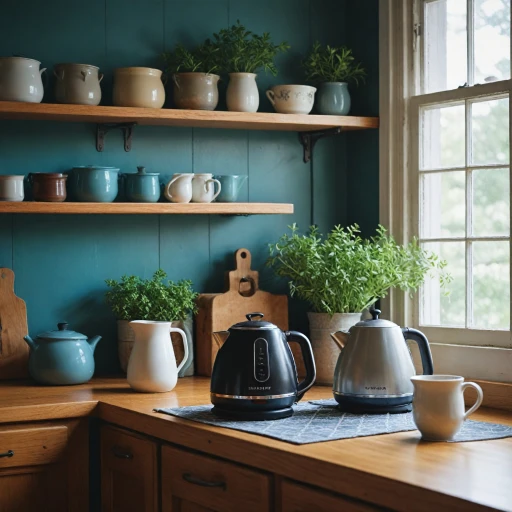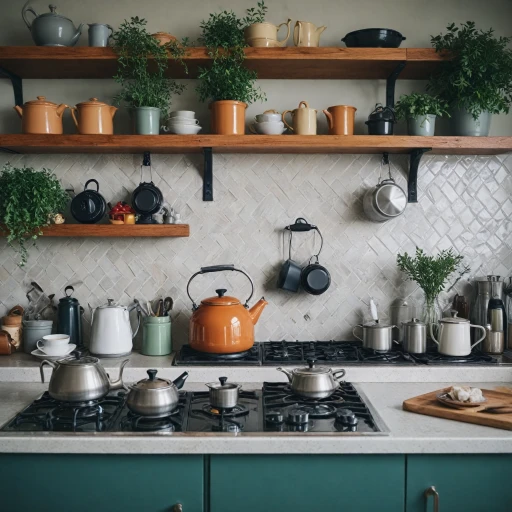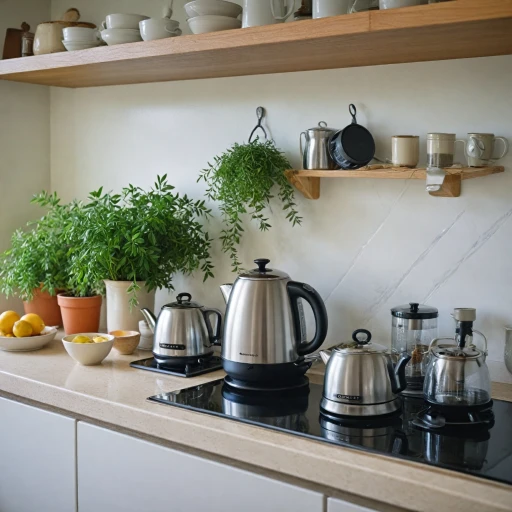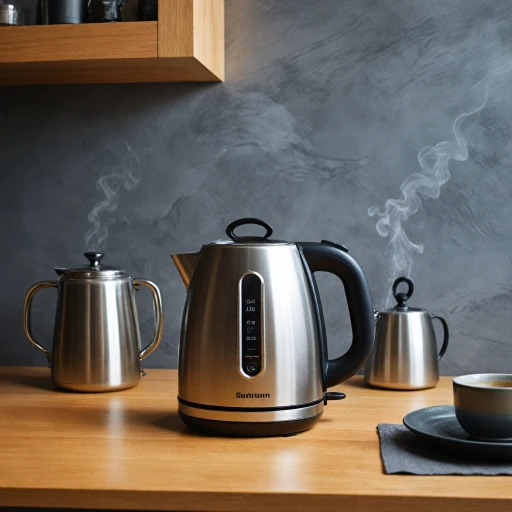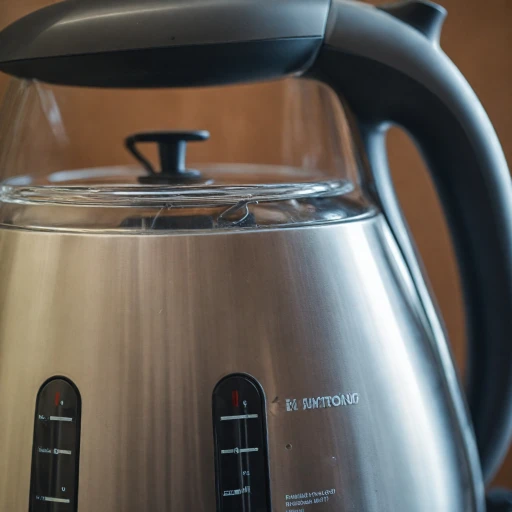
The Evolution of Electric Kettles
Tracing the Journey of Electric Kettles in the Kitchen
Electric kettles have become a kitchen staple in households worldwide, evolving significantly over the years to cater to the diverse needs of modern homes. Early electric kettles were simple appliances designed solely for boiling water. However, as kitchen technology developed, so did the role of these small yet essential devices in the appliance landscape.
In the past, traditional stovetop kettles were the norm. But the invention of the electric kettle introduced convenience and speed, transforming how we approach our daily routines. Whether you're preparing a quick breakfast or spending an afternoon with friends, a kettle saves time without compromising on performance. From humble beginnings as mere water-boiling apparatuses, today's electric kettles boast an array of innovative features. Many models now include temperature control settings, stainless steel finishes, and energy-efficient designs, making them a top pick among kitchen appliances.
Furthermore, the advancement in technology paved the way for smart kettles. They're designed to integrate seamlessly into smart home ecosystems, joining the ranks of other modern appliances like refrigerators, washing machines, and air conditioners. This integration reflects the rising trend of households embracing smart home technology to enhance the efficiency of daily tasks, such as reducing energy consumption, which aligns with the increasing emphasis on sustainability.
In today's market, consumers can choose from a plethora of options tailored to suit various preferences and needs. From compact models for small kitchens to more advanced versions with various functionalities, there's an electric kettle for everyone. To make an informed decision, it's recommended to explore the different types of kettles available, ensuring you select the best fit for your home kitchen.
Key Features to Consider When Buying an Electric Kettle
Important Factors to Look for in an Electric Kettle
When purchasing an electric kettle, it is crucial to evaluate various features to ensure you bring home the best option suited to your needs. With numerous products available, understanding these key aspects will help you choose a valuable addition to your home appliances.Material and Design
The material of the kettle affects not only its durability but also its performance. Stainless steel is a top choice due to its long-lasting nature and easy maintenance. It's also important to consider the design, which should complement your other kitchen appliances like refrigerators or wall ovens.Speed and Capacity
Time-saving is a significant benefit of electric kettles, so consider models that efficiently boil water. Check the capacity to suit your household size or typical usage. A smaller household may prefer a compact kettle, while larger families might opt for a larger capacity.Energy Efficiency
An appliance's energy consumption is a notable factor, especially if you're looking to save energy and reduce your home's overall carbon footprint. Look for kettles with an automatic shut-off feature to prevent unnecessary energy use. For more insights on how these products impact energy consumption, you can explore our detailed guide on electric kettles.Temperature Control
Smart features like adjustable temperature settings can elevate your appliance's utility beyond just boiling water. These advanced controls provide precision, making them ideal for brewing different types of tea or preparing coffee, where distinct temperatures are required.Safety Features
Considering the household appliances you already own, safety should not be compromised. Features like boil-dry protection and cool-touch handles prevent accidents in busy kitchens. These ensure that even the most hurried chef in your kitchen remains safe amidst the hustle.Energy Efficiency and Environmental Impact
Efficiency, Environmental Impact, and Sustainability
Electric kettles have become indispensable in today's kitchen appliances, including major appliances like refrigerators and air conditioners. As you delve deeper into the world of these small appliances, understanding their energy efficiency and environmental impact becomes crucial. Electric kettles are often recognized for their ability to boil water swiftly, saving you valuable time and energy in the kitchen. Most modern models are designed to be highly efficient, making them a competitive choice among other home energy-efficient products. However, it's essential to ensure that your appliance is working optimally to truly enjoy these benefits. Choosing the right model, like a stainless-steel version, can enhance energy savings significantly. Here's what to consider to ensure efficiency and sustainability in your purchase:- Opt for kettles with rapid boil technology, reducing energy consumption significantly over time.
- Look for models with automatic shut-off features to avoid overheating and unnecessary energy use.
- Consider kettles made from eco-friendly materials, minimizing environmental impact.
- Check for energy ratings and certifications that indicate efficient energy use to better shop and learn about these options.
Health and Safety Considerations
Prioritizing Safety and Health in Electric Kettle Usage
In the landscape of household appliances, electric kettles stand out as indispensable kitchen appliances, seamlessly integrating into the rhythm of modern life. These helpful gadgets are celebrated not just for their efficiency in boiling water, but also for the safety mechanisms they offer. Yet, as with any home appliance, there are important health and safety considerations to bear in mind. Firstly, it's essential to note that many modern electric kettles incorporate automatic shut-off features. This is a crucial safety component, ensuring that the appliance does not continue boiling once the water has reached the necessary temperature. This feature not only conserves energy but also mitigates risks associated with overheating and potential fires. When considering materials, opting for kettles made with stainless steel or glass is often recommended. These materials are less likely to leach chemicals into the water compared to certain types of plastic, especially when exposed to high heat over the years. Stainless steel kettles, prevalent in both home depot and specialty shops, represent some of the best choices for those prioritizing health along with efficient design. Furthermore, water filters integrated within kettles can significantly enhance the quality of the water being boiled. This is particularly beneficial for those who prioritize pure, clean water free from additives. Over time, these filters ensure the longevity of the kettle itself, preventing limescale buildup that can affect the appliance's efficiency and lifespan. The design of the kettle's spout also plays a role in safety. A well-designed spout prevents excessive steam from escaping and reduces the likelihood of hot water spills. Some kettles, often found among top products in home appliances, even incorporate anti-spill lids and cool touch exteriors to offer an added layer of protection. In terms of health, the simplicity of the electric kettle is advantageous. Compared to using a stove, they do not emit direct heat or fumes into the air, making them a cleaner option for the home. This can contribute to better indoor air quality, especially in smaller spaces where air conditioning or air flow might be limited. Finally, regular maintenance plays an important role in ensuring the safe use of these appliances. Regular descaling, using parts accessories correctly, and adhering to the manufacturer’s guidelines can all help extend the life of an electric kettle, simultaneously maintaining the safety and efficiency of the appliance. Learn more about other smart maintenance tips to save time and energy in your kitchen. In conclusion, while electric kettles are highly efficient and user-friendly kitchen appliances, keeping these safety and health considerations in mind can ensure they remain a beneficial fixture in your household for many years.Innovative Uses of Electric Kettles Beyond Boiling Water
Beyond the Boil: Unexpected Applications in the Kitchen
Electric kettles have firmly established themselves as indispensable kitchen appliances, with roles going beyond simply boiling water. In today's home kitchens, it's about versatility and practicality, which electric kettles deliver.- Cooking Companion: Electric kettles can swiftly prepare hot water for cooking pasta or grains, saving time compared to traditional stovetop methods. By pre-heating the water, kettles reduce the overall cooking time, making them a valuable asset in the fast-paced kitchen environment.
- DIY Beauty Treatments: For those interested in homemade beauty treatments, an electric kettle can heat water to create steam facials or prepare scrubs, offering a convenient, home-based spa experience.
- Cleaning Aid: Hot water from kettles is handy for quick cleaning tasks, such as filling steam mops or ensuring thorough cleaning of household appliances like wall ovens or washers.
- Preserving Flavors: In the world of teas, having the right temperature is crucial for preserving flavors. While boiling remains the primary use, many kettles offer temperature control features that cater to different types of teas.
Maintenance and Longevity of Electric Kettles
Tips for Prolonging the Life of Your Electric Kettle
Maintaining your electric kettle effectively can greatly influence its performance and lifespan. By observing a few essential practices, this small but valuable piece of your kitchen appliances collection can serve you efficiently for years.- Regular Descaling: Over time, mineral buildup from water can affect the efficiency of your electric kettle. Depending on the water hardness in your area, regular descaling is crucial. Using white vinegar or a commercial descaler helps to dissolve these deposits.
- Proper Cleaning: Wipe the exterior of your appliance with a damp cloth to maintain its appearance. For stainless steel models, consider using a stainless steel cleaner to keep them shiny and free from smudges.
- Avoiding Overfilling: Only fill the kettle with the necessary amount of water. This not only saves energy but also prevents water from spilling or boiling over, which can cause damage to the heating element and other parts.
- Water Quality: Using water from refrigerators or filtered water can reduce mineral deposits, enhancing the performance of your kettle and saving you from frequent descaling.
- Timely Repairs: Address any malfunctions or damages promptly. Should the kettle show signs of wear, consult the manufacturer's guidelines or contact a professional for the best solutions.
- Smart Use of Appliances: Use your electric kettle alongside other household appliances to optimize home energy use. Consider the timing when using multiple energy-heavy appliances, such as air conditioners or washing machines, to avoid overloading your home energy supply.

